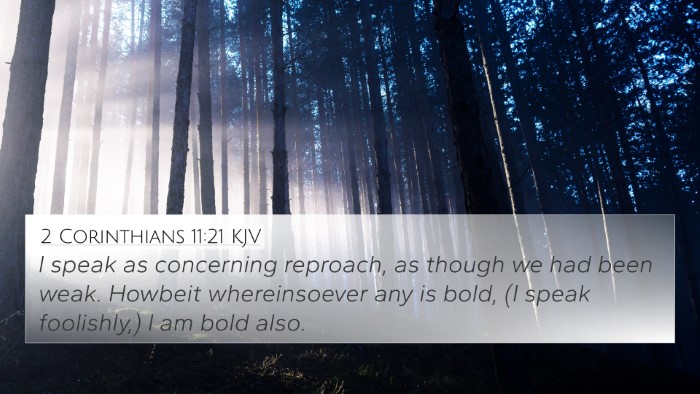Old Testament
Genesis Exodus Leviticus Numbers Deuteronomy Joshua Judges Ruth 1 Samuel 2 Samuel 1 Kings 2 Kings 1 Chronicles 2 Chronicles Ezra Nehemiah Esther Job Psalms Proverbs Ecclesiastes Song of Solomon Isaiah Jeremiah Lamentations Ezekiel Daniel Hosea Joel Amos Obadiah Jonah Micah Nahum Habakkuk Zephaniah Haggai Zechariah MalachiVerse
2 Corinthians 11:1 2 Corinthians 11:2 2 Corinthians 11:3 2 Corinthians 11:4 2 Corinthians 11:5 2 Corinthians 11:6 2 Corinthians 11:7 2 Corinthians 11:8 2 Corinthians 11:9 2 Corinthians 11:10 2 Corinthians 11:11 2 Corinthians 11:12 2 Corinthians 11:13 2 Corinthians 11:14 2 Corinthians 11:15 2 Corinthians 11:16 2 Corinthians 11:17 2 Corinthians 11:18 2 Corinthians 11:19 2 Corinthians 11:20 2 Corinthians 11:21 2 Corinthians 11:22 2 Corinthians 11:23 2 Corinthians 11:24 2 Corinthians 11:25 2 Corinthians 11:26 2 Corinthians 11:27 2 Corinthians 11:28 2 Corinthians 11:29 2 Corinthians 11:30 2 Corinthians 11:31 2 Corinthians 11:32 2 Corinthians 11:33






